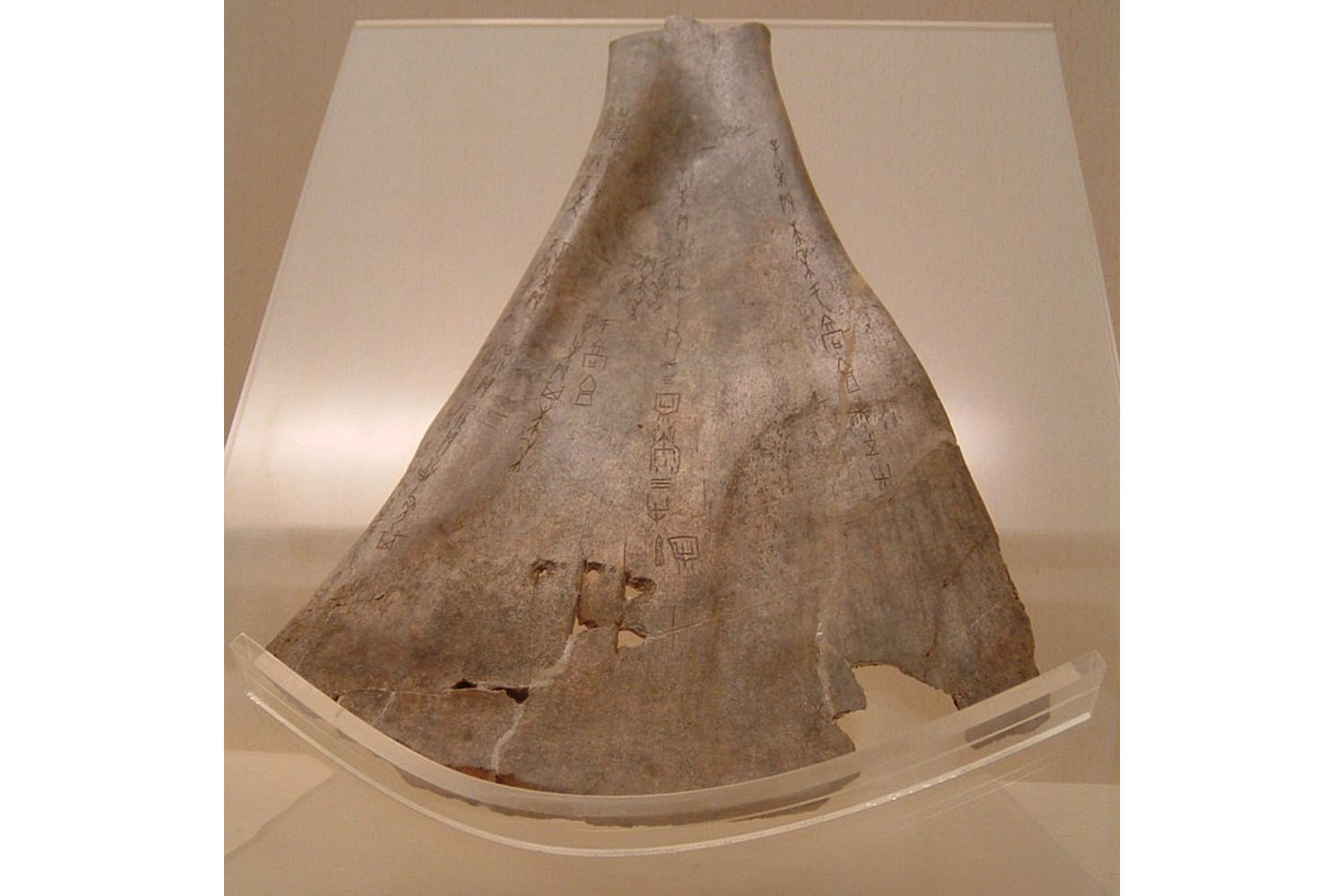When I think of bones I think of animal parts or anatomy or even the state of my on bones, but I definitely don’t think of ghosts.
Yet, in my bones some ghosts do live ‘” as in the Chinese version of ancestors. This thought makes me wonder where my paternal grandfather is. In my wrist? My knee? My toe? Hopefully not in my tailbone! (I do know where my father lives, though ‘” in my nose: we have the same sense of keen smell that can be so easily irritated).
Recently Michael and I saw an original new opera called, ‘The Bonesetter’s Daughter,’ crafted by Amy Tan after her book by the same title. This modern opera was complete with Chinese funeral horns and an aerial singing ghost carrying her ancestral dragon bone. That ghost was the dead Aunt who haunted not only her sister, but her niece as well. The opera was captivating for many reasons, not least of which was the thoughts it provoked of how our ancestors really do haunt us like ghosts.
Now to Westerners, ghosts and haunting conjure images of Halloween, spooky houses or graveyards. Yet each of us is actually haunted daily in our very own bones. We know, of course how our ancestors live in and through us influencing our looks and health.
Yet, that same ancestral energy also influences our beliefs and actions. Issues such as betrayal, abandonment or loss, and beliefs such as ‘I must do it alone,’ ‘I have to work hard to earn anything,’ and ‘it’s not safe to be me’ can all be inherited as well. Such influences are ghostly, indeed, and much can be said about how what we do impacts seven generations to come.
As Precious Auntie sings from Act II, Scene I of ‘The Bonesetter’s Daughter’ opera:
‘I am a ghost now.
I live in memory.
A ghost does not live only in the past.
You see me, don’t you?
Don’t you?’
Unfortunately, most of us don’t see Auntie, or grandmother or great-great grandfather and how the painful loss of all their wealth, for instance, influences our own expectations that we’ll loose money no matter what. Such ancestral beliefs set up our own repeating core beliefs and life patterns and they keep us from living the lives we want.
Then there’s the dragon bone Precious Auntie always carried. This Chinese herb, Os draconis, or Long Gu, is used in Chinese Medicine to pacify ‘the spirit,’ or calm emotional distress, restlessness, insomnia, palpitations with anxiety, irritability, dizziness, vertigo, blurred vision and bad temper.
While at San Francisco’s ‘The Bonesetter’s Daughter’ I saw a bona fide (‘bone-fide’) ancient dragon bone. It was amazing to see this hipbone of a cow on which were carved several lines of Chinese characters. Thousands of years ago, dragon bones were originally used for divination. The shamans (original Chinese medicine practitioners) would throw some animal’s extremity bone into the fire and read the resulting cracks for divination. This was then carved onto the bone and carried by the ‘˜divinee’.
Such divinations were sacred and so passed on down through the family generations. In time, healers began grinding the bones and giving the powder to the wealthy to ‘anchor their spirits’. In this way, the person would literally imbibe the ‘divine’ (the divination) to bring peace to their souls. I find this fascinating.
As well, the Chinese have traditionally honored their ancestors in several ways. While today this may seem superstitious ‘” an appeasing of unseen forces so they don’t have negative impact, it’s actually an important part of the process for clearing ancestral (or any other) influences. For it is only when we become aware of and acknowledge something that we can truly let it go, like embracing the monsters of our dreams. Then we can bury the issue as if a well-gnawed dog bone and no longer be bound by it ‘” no longer be haunted by our ancestors.
So this Halloween Eve and following All Soul’s Day perhaps fully embrace your bones. Honor the ancestors haunting them. Acknowledge their inherited tendencies and then release the ones you don’t want to ash so it can nourish the earth of your being. You never know what new growth might shoot up from the compost instead.
So, how are your ancestors haunting your bones?

